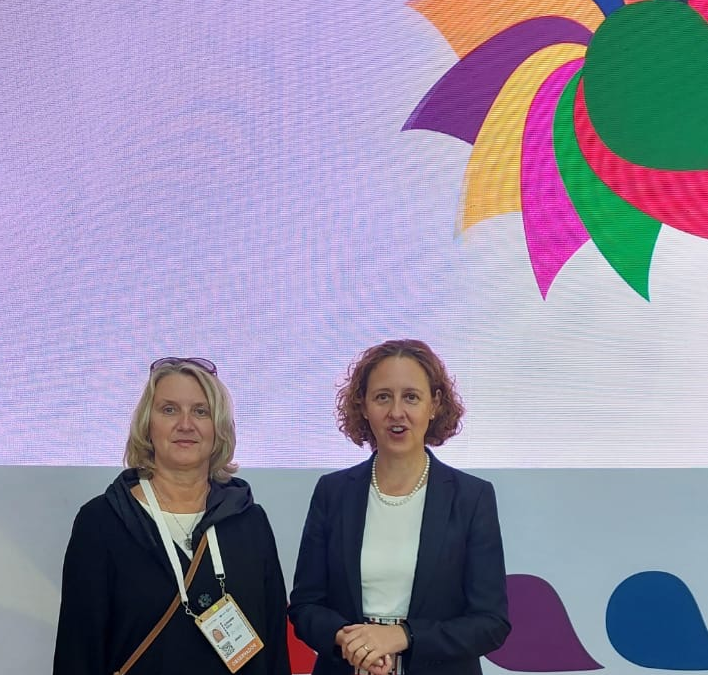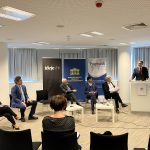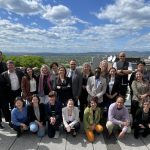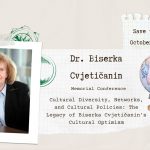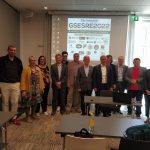Aleksandra Uzelac, Head of Culture and Communication Department participated in the UNESCO World Conference on Cultural Policies and Sustainable Development – MONDIACULT 2022 (https://www.unesco.org/en/mondiacult2022), which was held in Mexico City from 28 to 30 September 2022.
40 years after the first UNESCO MONDIACULT conference, which was held in Mexico in 1982, where the foundations of international cultural policy research were established and where the widely used UNESCO definition of culture was born, the second MONDIACULT conference was organized in Mexico City. MONDIACULT 2022 is the largest world conference dedicated to cultural policies in the last 40 years, which gathered almost 2,600 participants over three days, including 135 ministers of culture, numerous representatives of non-governmental and intergovernmental organizations and 9 UN agencies. Aleksandra Uzelac, Ph.D., participated as an IRMO representative.
The result of the conference was the unanimous adoption of the ambitious Declaration for Culture. The text of the Declaration affirms culture as a “global public good” and reflects the agreement of the signatory countries on a joint plan to strengthen public policy in this area. Audrey Azoulay, Director General of UNESCO, emphasized that although culture plays a fundamental role in our societies, and despite the progress achieved, culture still does not have the place it deserves in public policies and international cooperation – and organizing the MONDIACULT 2022 conference and adopting the Declaration were intended to give a strong impetus to change that.
In the Declaration, the result of ten-month multilateral negotiations under the leadership of UNESCO, the signatory states confirm for the first time that culture is a “global public good” and call for culture to be included as a separate goal among the goals of sustainable development after 2030. The text defines a set of cultural rights that should be taken into account in public policies, ranging from the social and economic rights of artists, to artistic freedom, the rights of indigenous communities to preserve and transmit their ancestral knowledge, and the protection and promotion of cultural and natural heritage. It also calls for significant regulation of the digital sector, especially major platforms, in favor of online cultural diversity, artists’ intellectual property rights and fair access to content for all.
The text of the Declaration is available at the following link: https://www.unesco.org/sites/default/files/medias/fichiers/2022/10/6.MONDIACULT_EN_DRAFT%20FINAL%20DECLARATION_FINAL_1.pdf

